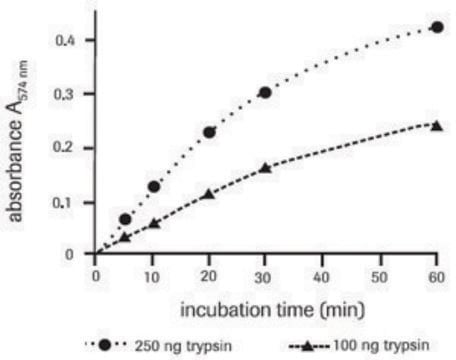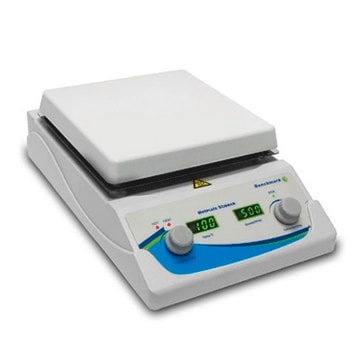SRP2151
HCV-NS4A/NS3-1b Protease, Histag, strain HC-J4 from hepatitis C virus
recombinant, expressed in E. coli, ≥80% (SDS-PAGE)
Synonyme(s) :
Hepatitis C virus NS3 protease, NS3, NS4ANS3 complex, pfam02907
About This Item
Produits recommandés
Source biologique
hepatitis C virus
Produit recombinant
expressed in E. coli
Pureté
≥80% (SDS-PAGE)
Forme
frozen liquid
Poids mol.
~22.7 kDa
Conditionnement
pkg of 10 μg
Concentration
500 μg/mL
Couleur
colorless to clear
Numéro d'accès NCBI
Conditions d'expédition
dry ice
Température de stockage
−70°C
Informations sur le gène
hepatitis C virus ... HCVgp1(951475)
Actions biochimiques/physiologiques
Forme physique
Notes préparatoires
Code de la classe de stockage
10 - Combustible liquids
Classe de danger pour l'eau (WGK)
WGK 1
Point d'éclair (°F)
Not applicable
Point d'éclair (°C)
Not applicable
Certificats d'analyse (COA)
Recherchez un Certificats d'analyse (COA) en saisissant le numéro de lot du produit. Les numéros de lot figurent sur l'étiquette du produit après les mots "Lot" ou "Batch".
Déjà en possession de ce produit ?
Retrouvez la documentation relative aux produits que vous avez récemment achetés dans la Bibliothèque de documents.
Notre équipe de scientifiques dispose d'une expérience dans tous les secteurs de la recherche, notamment en sciences de la vie, science des matériaux, synthèse chimique, chromatographie, analyse et dans de nombreux autres domaines..
Contacter notre Service technique







